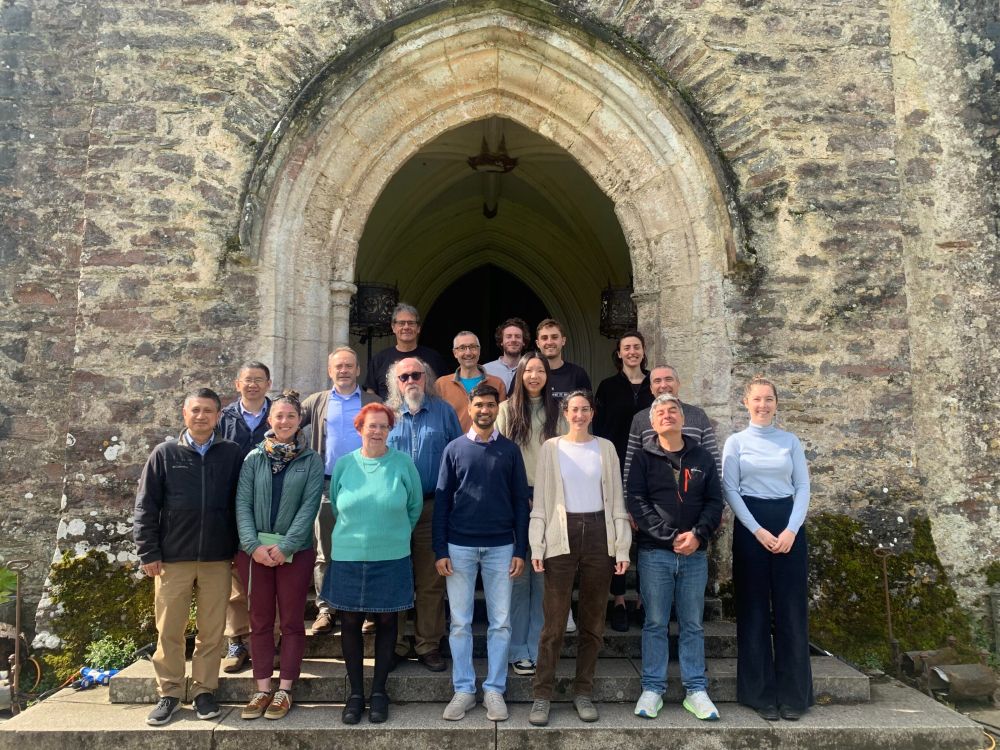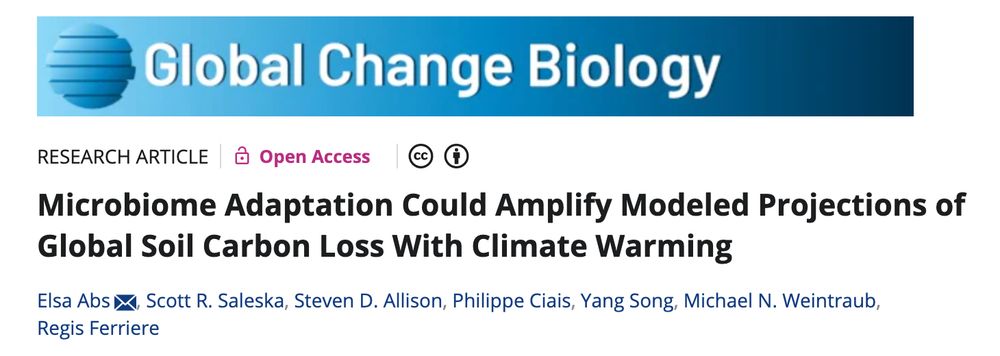Elsa Abs
@elsa-abs.bsky.social
770 followers
690 following
83 posts
Earth scientist, microbial/ecosystem ecologist, @ERC_Research for project GAMEchange @LSCE_IPSL, Marie Curie @UCIrvine, PhD @ENS_ULM, they/iel 🇫🇷 🇱🇧 🏳️🌈 https://www.elsaabs.com/
Posts
Media
Videos
Starter Packs
Pinned
Elsa Abs
@elsa-abs.bsky.social
· Dec 4
Elsa Abs
@elsa-abs.bsky.social
· Jul 24
Elsa Abs
@elsa-abs.bsky.social
· Jul 17
Elsa Abs
@elsa-abs.bsky.social
· Jul 6
Elsa Abs
@elsa-abs.bsky.social
· Jun 20
Elsa Abs
@elsa-abs.bsky.social
· Jun 20
Elsa Abs
@elsa-abs.bsky.social
· Jun 20
Elsa Abs
@elsa-abs.bsky.social
· Jun 20
Elsa Abs
@elsa-abs.bsky.social
· Jun 20
Elsa Abs
@elsa-abs.bsky.social
· Jun 20
Reposted by Elsa Abs
LEMONTREE
@lemontree-uofr.bsky.social
· Apr 24

Simpler, Smarter, Stronger: Workshop on Incorporating EEO into Land Surface Models - Lemontree
The LEMONTREE team and invited guests recently met at Dartington Hall to explore how Eco-Evolutionary Optimality theory can simplify and strengthen Land Surface Models.
research.reading.ac.uk
Elsa Abs
@elsa-abs.bsky.social
· Mar 21








